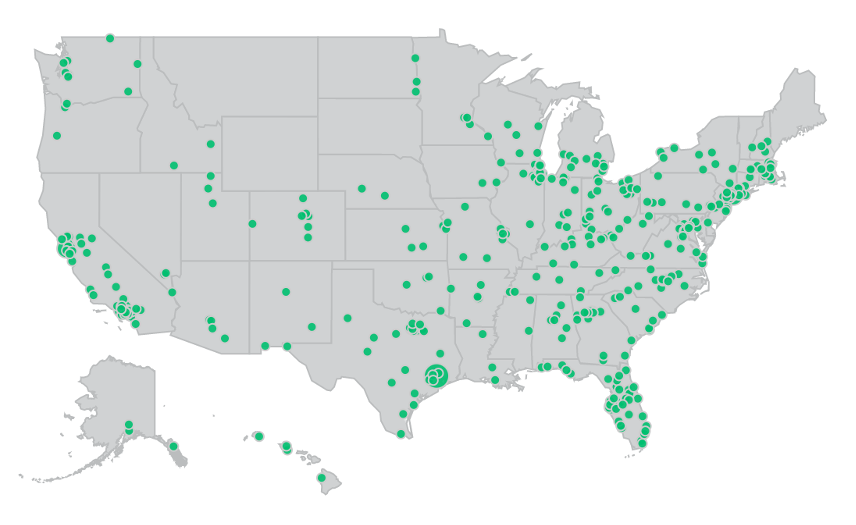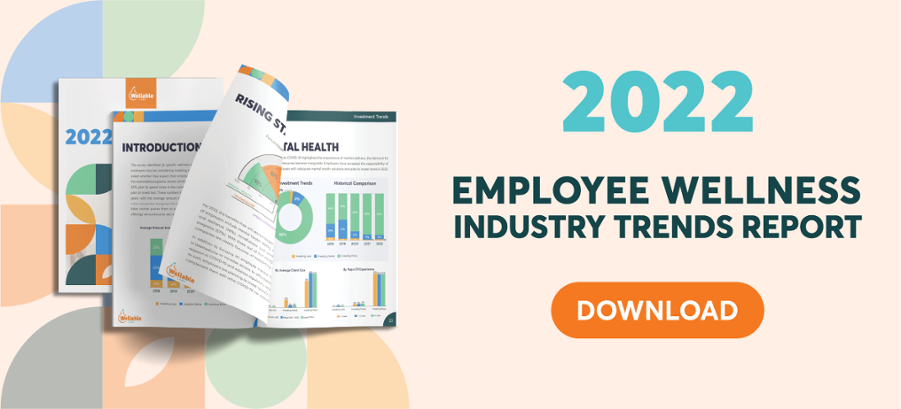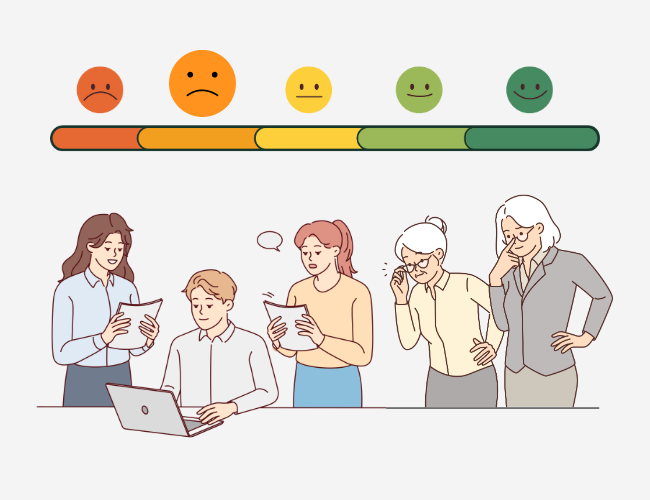To help organizations understand the preferences of employees in regard to returning to the workplace, Wellable Labs, the thought leadership group within Wellable, surveyed working age adults across the US. Specifically, the COVID-19 Vaccine & Return To The Workplace Survey sought to explore employee willingness to have COVID-19 vaccination requirements in order to return to work and employee expectations of work in a post-COVID world. Below are highlights from the survey. To get a more in-depth exploration of the findings as well as different legal considerations employers should be mindful of as COVID-19 vaccines are made generally available, check out this on-demand webinar with Brighid Courtney, Director of Wellable Labs, and Barbara Zabawa, President of the Center for Health and Wellness Law. In this webinar, Brighid reviewed the results from the survey, and Barbara explored whether employers can and/or should mandate employees to receive a vaccine.
Wellable Labs | On-Demand Webinar
COVID-19 Vaccine: Legal Perspective On What Can/Should Employers Do
During this free webinar, Barbara Zabawa, President of the Center for Health and Wellness Law, discusses different legal considerations employers should be mindful of as COVID-19 vaccines are made generally available.
Changes In Work Due To COVID-19
To provide some perspective on the current state of work, the survey asked respondents how their work arrangements changed due to COVID-19. As expected, only 28.6% of respondents are currently back to working fully on-site. Nearly one-fifth (19.3%) were partially or fully remote prior to the pandemic, and more than half (52.3%) had to transition to partially or fully remote due to COVID-19. As multiple vaccine options receive general use authorization, the majority of employees may be in a position where their employer will consider making COVID-19 vaccinations a requirement to return to work. General use vaccines will influence if and how quickly employees receive the vaccine as well as potentially change safety standards at work and the number of employees working remotely.
Should Employers Require Vaccinations?
When posed a question about whether their employer should require all employees without a qualified exemption to receive a COVID-19 vaccination before returning to the workplace, respondents were largely split. The plurality (42.8%) felt it was appropriate for employers to require vaccinations, but the majority was either unsure or felt that it should not be a requirement.
The responses to this question varied by employment status. Those employed part-time (57.4%) felt most strongly about employers making vaccinations a requirement. This is likely due to these jobs (e.g., retail, restaurants, etc.) disproportionately being affected by shutdowns and having higher risks of exposure. Employers should expect a significant portion of their employee base not to feel comfortable with required vaccinations. This sentiment may change as more people are vaccinated globally without complications.
Once a COVID-19 vaccine is widely available, do you think your employer should require all employees without a qualified exemption to receive a COVID-19 vaccination before returning to the workplace?
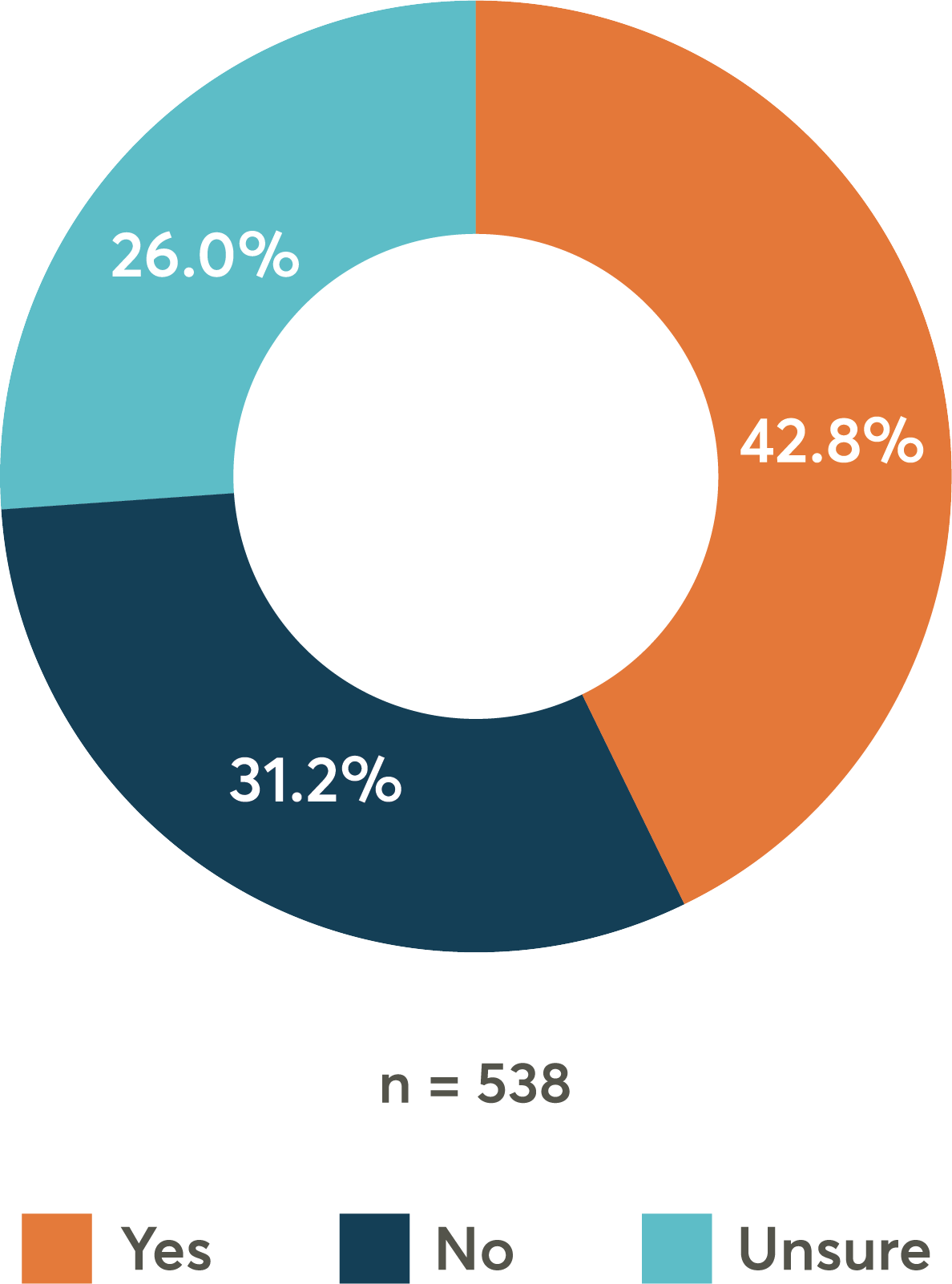
The survey also asked if employees would be more likely to get vaccinated if their employer removed barriers to receiving it (e.g., on-site vaccination clinic, paid time off to receive the vaccine, etc.). Only 52.0% of respondents felt their employer removing barriers increased their likelihood of getting the vaccine. This percentage was higher for part-time employees (60.4%) and the highest for those with only some high school education, which is likely a result of this cohort having significant barriers to access.
Future Of Work
When asked if they would feel comfortable returning to the workplace at full capacity without additional safety measures but with all their colleagues vaccinated, respondents remained largely torn, with 40.1% and 35.9% responding yes and no, respectively, and the remainder being unsure. The majority of part-time employees (51.5%), who were disproportionately impacted by the economic shutdowns, were most likely to return to work without additional safety measures. Since safety measures often mean additional costs for employers, many of these employees may be concerned about how certain safety measures may limit the ability of their industries to bounce back economically. Respondents with only some high school education were also significantly more likely to be comfortable with just vaccinations (63.6%). Individuals over the age of 65 were least likely (25.0%) to want to return without additional safety measures. Males (49.0%) were also more likely than females (32.0%) to be willing to return to work with just vaccinations.
Once a COVID-19 vaccine is widely available and if your employer requires all employees without a qualified exemption to receive a COVID-19 vaccination before returning to the workplace, do you feel comfortable returning to the workplace at full capacity without additional safety measures (e.g., face masks, social distancing policies, additional sanitation and hygiene requirements, etc.)?
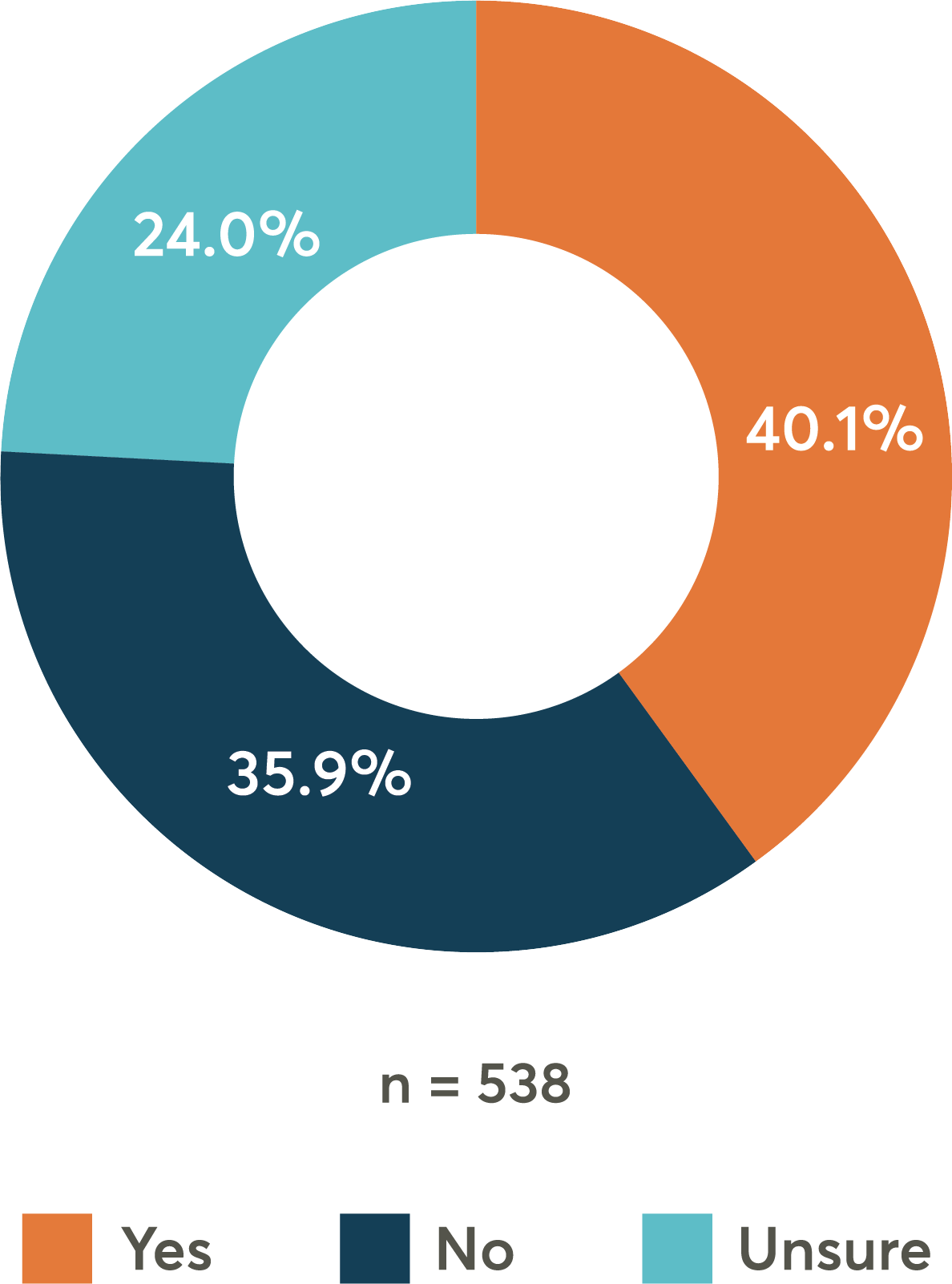
Once a vaccine has been widely distributed and the pandemic is under control, 57.1% of respondents expect their previous work arrangement will return to normal. More than a quarter expect to work remotely a larger portion of the time (19.9%) or full-time (6.9%). As expected, the responses to this question varied by industry, with software and technology companies the least likely to return to pre-pandemic work arrangements. This may be most evident by leading technology companies, like Facebook, hiring remote work specialists in their human resource departments to address this new work arrangement.
About The Survey
The survey collected responses from 538 working age (18 to 70) adults across the US. All responses were collected on December 16, 2020. The results from the survey have a margin of error of 4.315%.
Age Distribution
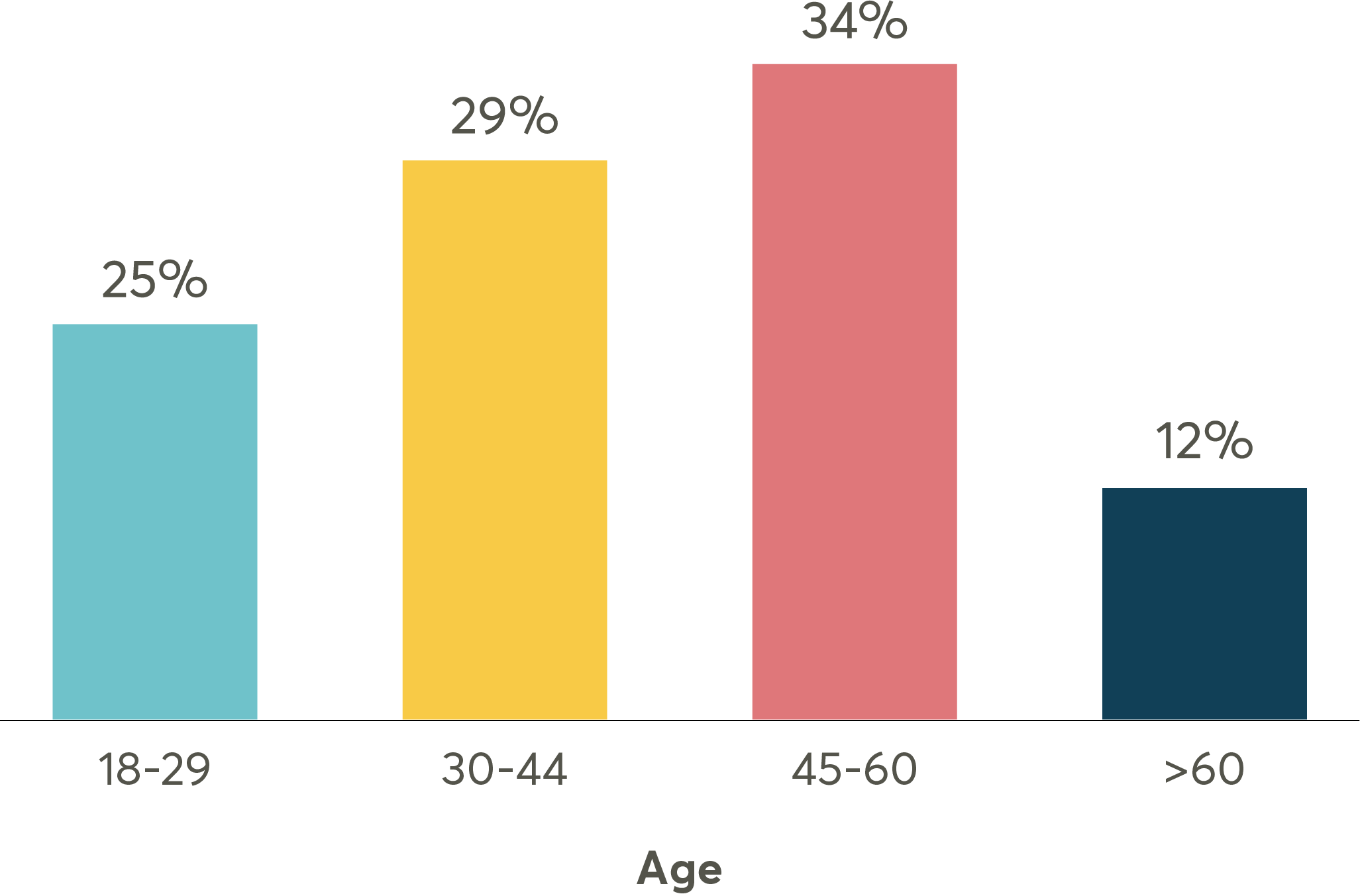
Geographic Distribution
